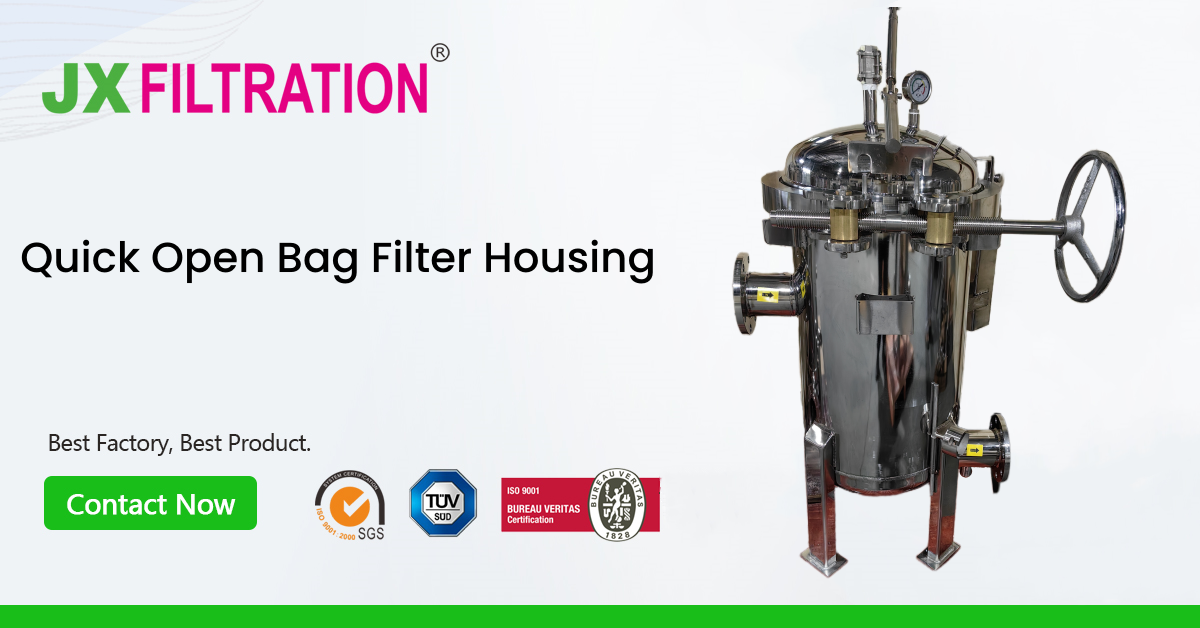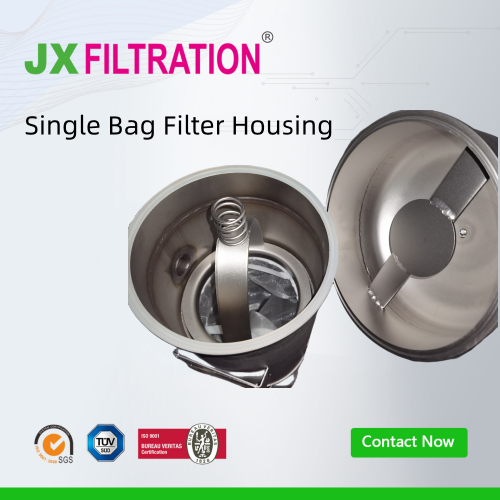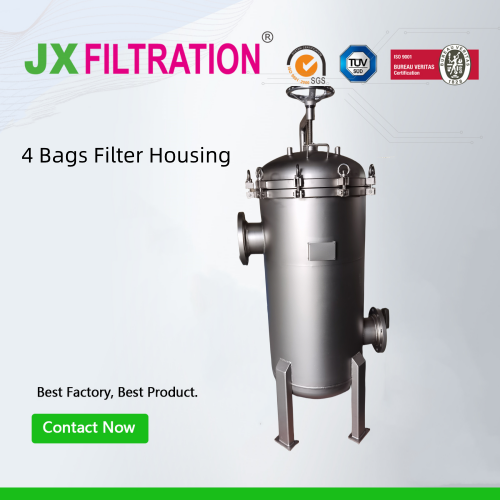How to Use a Bag Filter
1. Basic Structure of the Bag Filter
The bag filter primarily consists of three components: filter bags, the filter housing, and a support frame.

Working Principle
The fluid to be filtered enters the filter under pressure. As it passes through the filter bag, solid particles and impurities are trapped inside the bag, while clean fluid exits through the outlet.
The filter bag serves as the core filtration element and comes in various materials, such as polyester and polypropylene. Different materials are suitable for different filtration conditions, effectively capturing a wide range of impurities, from fine dust particles to larger debris.
2. Advantages of Bag Filters
-
High Filtration Efficiency
Bag filters offer excellent filtration precision. Various filter bags can be selected based on specific needs, ensuring a high impurity removal rate and maintaining fluid purity, which provides high-quality raw materials or media for subsequent processes. -
Large Dirt Holding Capacity
With a large filtration area, the filter bag accommodates a significant amount of impurities, extending the service life of the filter and reducing the frequency of bag replacements, thereby lowering operating costs and maintenance workloads. -
Ease of Operation
Designed with a reasonable structure, the bag filter is easy to install and remove. Routine maintenance and bag replacements can be performed effortlessly by operators, even those without professional training, after a brief orientation. -
Wide Applications
Bag filters can be used across all industries requiring fluid filtration, including chemicals, pharmaceuticals, food and beverages, electronics, painting, and environmental protection. They are suitable for both liquid and gas filtration, demonstrating excellent versatility and adaptability.
Any Requirements, Contact Us Now!
Kris
Email/Teams: kris@filtrationchina.com
Mobile/Whatsapp/Wechat: +86 18980776200


